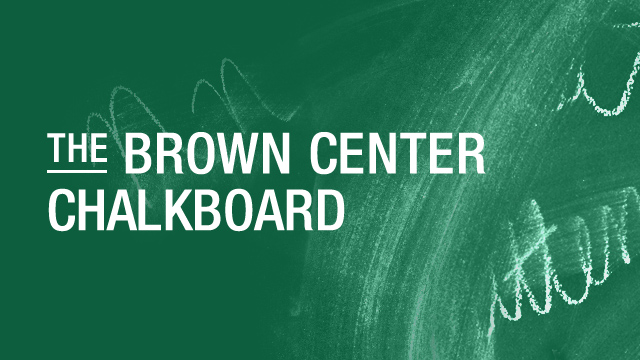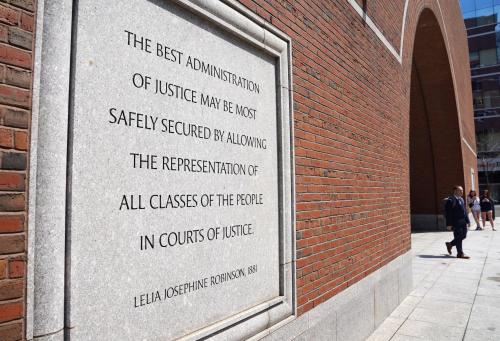The authors of a recent op-ed in the Los Angeles Times concluded, “School boards in towns and cities are less ideological and more pragmatic than politicians in Washington.” The claim, made as part of an argument for abolishing the Department of Education, was presented without evidence. In fact, a national survey conducted by myself and Douglas Ihrke found that a slight majority of school board members in the United States do identify with a specific ideology. More to the point, our data show that American school boards are too diverse in their makeup and governance preferences to warrant the broad claims offered in the Los Angeles Times op-ed.
We conducted our survey in 2014 after collecting email addresses from school districts in all 49 states with democratically elected local school boards. A total of 5,002 school board members responded to the survey. As a check for response bias we compared the school districts represented in our sample with the overall population of school districts in the United States. Overall, the districts in our sample had similar graduation rates, student demographic makeups, and spending levels as the population of American school districts. Though an imperfect check, it does give us some confidence in the representatives of the sample.
As can be seen in the figure below, just over half of survey respondents identified as liberal or conservative. Meaning, a substantial share of American school board members do hold clear ideological preferences. Notably the percentage of board members expressing ideological preferences was consistent regardless of the size or urbanity of the school district. We also found signs of ideological diversity on boards, with 25.7 percent of respondents stating they shared political views with “few” or “none” of their fellow board members.
So, despite being almost universally officially nonpartisan, school boards are not immune to ideologically driven politics. Our data indicate that one in four school board members at least somewhat agree that “interest groups have significant influence over board decisions.” Sixty-three percent at least somewhat agree they “listen to the ideas of organized interest groups and act on their input when [deemed] appropriate.” Though we did not ask which interest groups are most active in their districts, there is good evidence that interest groups hold influence over boards. Moreover, this study is not the first to point out the intersection of ideology, interest groups, and school board governance. Paul Peterson, Fredrik Hess and David Leal, Eric Brunner and Tim Squires, Brian Adams, and others have all written on interest group politics in education and/or the potential for school boards to be captured by teachers unions.
But is the presence of ideology on governance boards problematic? Not necessarily. Certainly, a captured school board that serves the interests of a teachers union over those of the public at-large is failing to be an effective local democratic institution. However, Ihrke and I find that other board dynamics, including the presence of destructive personal conflict between board members, the ability of board members to agree on a common definition of accountability, and adherence to good governance practices such as regular strategic planning, influence board and organizational performance. We find no link between board member ideology and board or organizational performance.
The findings do not mean that member ideology on school boards is irrelevant, or that school board races should drop the nonpartisan distinction. Further, the evidence collected from board members gives no reason to believe that school boards are inherently less ideological or more pragmatic than other elected governance bodies. More important, our data demonstrate why the American school board should not be studied as a single institution, but rather as a diverse population of over 13,000 unique governance bodies possessing unique strengths, weaknesses, and capacities. Overarching claims about the advantages (or disadvantages) of local school boards, such as those offered in the Los Angeles Times op-ed, ignore the realities of the institutions overseeing the majority of public school students in the United States.
The Brookings Institution is committed to quality, independence, and impact.
We are supported by a diverse array of funders. In line with our values and policies, each Brookings publication represents the sole views of its author(s).




